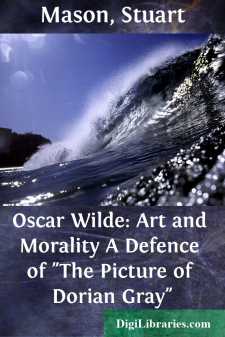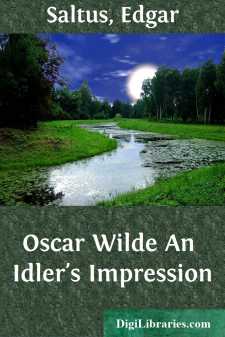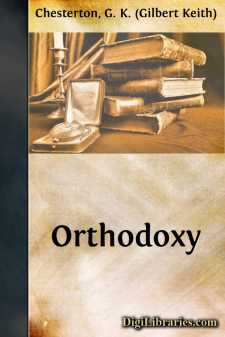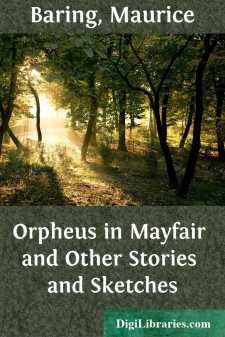Categories
- Antiques & Collectibles 13
- Architecture 36
- Art 48
- Bibles 22
- Biography & Autobiography 813
- Body, Mind & Spirit 142
- Business & Economics 28
- Children's Books 14
- Children's Fiction 11
- Computers 4
- Cooking 94
- Crafts & Hobbies 4
- Drama 346
- Education 46
- Family & Relationships 57
- Fiction 11828
- Games 19
- Gardening 17
- Health & Fitness 34
- History 1377
- House & Home 1
- Humor 147
- Juvenile Fiction 1873
- Juvenile Nonfiction 202
- Language Arts & Disciplines 88
- Law 16
- Literary Collections 686
- Literary Criticism 179
- Mathematics 13
- Medical 41
- Music 40
- Nature 179
- Non-Classifiable 1768
- Performing Arts 7
- Periodicals 1453
- Philosophy 64
- Photography 2
- Poetry 896
- Political Science 203
- Psychology 42
- Reference 154
- Religion 513
- Science 126
- Self-Help 84
- Social Science 81
- Sports & Recreation 34
- Study Aids 3
- Technology & Engineering 59
- Transportation 23
- Travel 463
- True Crime 29
Sort by:
by:
Stuart Mason
ART AND MORALITY "Why do you always write poetry? Why do you not write prose? Prose is so much more difficult." These were the words of Walter Pater to Oscar Wilde on the occasion of their first meeting during the latter's undergraduate days at Oxford. Those were "days of lyrical ardours and of studious sonnet-writing," wrote Wilde, in reviewing one of Pater's books some years...
more...
by:
Edgar Saltus
OSCAR WILDE ears ago, in a Paris club, one man said to another: "Well, what's up?" The other shook a paper: "There is only one genius in England and they have put him in jail." One may wonder though whether it were their doing, or even Wilde's, that put him there. One may wonder whether it were not the high fates who so gratified him in order that, from his purgatory, he might...
more...
CHAPTER I. DUDIE DUNNE PLAYS A GREAT TRICK TO RUN DOWN A CRIMINAL—AS SIMPLE JOHN HE APPEARS INNOCENT, BUT WHEN HIS MASK GOES OFF THE "FUR FLIES." "Oh, fellers, look at this! he's strayed or stolen; let's go for him." A group of little toughs were gathered at a street corner in a low locality in the city of New York when a dude of the first water with the regular Anglo step...
more...
by:
Walter Aimwell
CHAPTER I. Bridget, the Irish servant girl, had finished the house-work for the day, and sat down to do a little mending with her needle. The fire in the range, which for hours had sent forth such scorching blasts, was now burning dim; for it was early in October, and the weather was mild and pleasant. The floor was swept, and the various articles belonging in the room were arranged in their proper...
more...
INTRODUCTIONBY DR. EDWIN C. HEWETT. I have long thought that the careful, discriminating study of words is much neglected in our schools. And I am glad to approve, and help to forward, anything that will promote such a study. Not only will such a study improve a person's language greatly, but it will, at the same time, do much to improve the clearness and precision of his thinking; thought and...
more...
I INTRODUCTION IN DEFENCE OF EVERYTHING ELSE THE only possible excuse for this book is that it is an answer to a challenge. Even a bad shot is dignified when he accepts a duel. When some time ago I published a series of hasty but sincere papers, under the name of "Heretics," several critics for whose intellect I have a warm respect (I may mention specially Mr. G.S.Street) said that it was all...
more...
by:
S. Levett-Yeats
ORRAIN CHAPTER I THE CRY IN THE RUE DES LAVANDIERES My father, René, Vidame d'Orrain, was twice married. By his first wife he had one son, Simon, who subsequently succeeded to his title and estates, and was through his life my bitter enemy. By his second wife, whom he married somewhat late in life, he had two sons—the elder, Anne, known as the Chevalier de St. Martin from his mother's...
more...
by:
Maurice Baring
ORPHEUS IN MAYFAIR Heraclius Themistocles Margaritis was a professional musician. He was a singer and a composer of songs; he wrote poetry in Romaic, and composed tunes to suit rhymes. But it was not thus that he earned his daily bread, and he was poor, very poor. To earn his livelihood he gave lessons, music lessons during the day, and in the evening lessons in Greek, ancient and modern, to such...
more...
by:
Henry MacMahon
TWO GIRLS OF NORMANDY In all the countryside of Evreux, nay in all the beauteous old-time Normandy of the period of 1789, there were no lovelier filles du peuple than Henriette and Louise Girard. Their romantic story was often whispered by country gossips. In infancy foundlings on the church steps of Notre Dame, then brought to this quiet Norman backwater by the Girards and raised as sisters, they had...
more...
by:
Anthony Trollope
It is not true that a rose by any other name will smell as sweet. Were it true, I should call this story "The Great Orley Farm Case." But who would ask for the ninth number of a serial work burthened with so very uncouth an appellation? Thence, and therefore,—Orley Farm. I say so much at commencing in order that I may have an opportunity of explaining that this book of mine will not be...
more...











